|
It was great to catch up with all of you who made it to our March joint OST Network Convening. During our time together, we discussed summer programming. In breakout groups, we started to think about how we could support students and families during their transition into summer programs. Providers had a chance to share their summer program pitches and talk about staff recruitment and available job opportunities. We also shared information about the upcoming workshops for 5th graders and upper school students, where summer program providers and school staff will be on hand to answer questions about available opportunities and help students sign up for summer programming. Check out our meeting slides if you weren’t able to join us and see below for our Community Announcements. Community AnnouncementsSean Effel - Cambridge Camping: Cambridge Camping is offering two April School vacation week programs for 6-8th graders. Both programs will run from April 17th-21st, 9am-2:30pm, and cost $50 for the full week:  The Nature program provides an in-person nature program with field trips to many different natural areas around us. Daily field trips and program partners include Northeastern University's Marine Center, the Blue Hills Reservation, and a visit with Navigation Games. The program will run from April 17th-21st, 9am-2:30pm, and costs $50 for the full week. Learn more here! 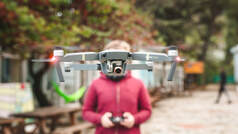 Get to the Chopper! is Cambridge Camping's STEAM-centered drone flight program to take place over the April Massachusetts school vacation week. This program introduces children to the science and engineering of drone flight, develops their interests in science and technology, builds friendships with fellow participants, and have a lot of fun along the way. Learn more here!
 Emily Meyer - Cambridge Public Library March Teen Poetry Contest Teen Poetry Contest running from 3/1-3/26 with $100 visa gift card for first place, $50 for second place, and $25 for third place. Must be one page, in English, and dropped off at the Teen Room or emailed to ptrunnell@cambridgema.gov 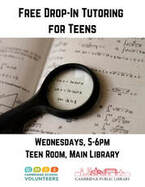 CSV CPL Free Drop-in Tutoring Need help with a class? Have a question before an exam? Tutors are available to help you! Cambridge School Volunteers and the Cambridge Public Library are pleased to offer tutoring services in the Teen Room of the Main Library from 5-6pm on Wednesdays. Sarah Winter - Community Art Center
Kickflipped: Teen Art Auction To benefit local teens and raise money for The Lynch Family Skatepark Public Art Project The Community Art Center (CAC) and The Charles River Conservancy (CRC) have teamed up to present Kickflipped: An Exhibition and Auction of Skateboard Art by Local Teens, on view at The Foundry (101 Rogers St. Cambridge, MA) from Feb. 16 - Mar. 21. Over the course of 5 weeks, teens in CAC's Teen Public Art Program have been working hard to create one-of-kind works of art on upcycled skateboards. Through the program, they have learned various art techniques, how to develop a concept to express their unique voice, and how to properly install an art exhibition. There will be a closing reception on Mar. 21, 5-7pm, which will coincide with the auction's closing. A portion of each item's proceeds will go directly to the teen artist, while another portion will help support The Lynch Family Skatepark Public Art Project. Visit here to learn more!
0 Comments
Hello OST Community! Below we’ve added a brief recap of the February Network meeting, resources, and community announcements, along with upcoming Network dates to remember. Here is a copy of our February 1st meeting slideshow and Newsletter. During our last meeting we spoke about stereotypes, biases, and how they impact students in school, out of school, and on social media. We watched 2 videos related to the topic. 1 video, was of a young African American man who was dealing with stereotypes in the classical music world, and the the other was of a video that has recently gone viral. i-Ready Personalized Instruction: An Introduction for OST Programs and Providers
ESON & MSN February Break Slideshow 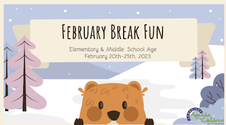 Be sure to check out our recently created ESON and MSN February Break Fun OST slideshow. Make sure your program is included and accurate. This slideshow will be shared with families, CPS Family Liaisons, and shown in schools. 2023 Rollin’ & Summer Resources Event: Provider Table Sign-up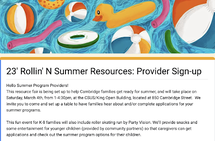 Have you signed up for your Programs Table for the event? If not, you can do so below. Hello Summer Program Providers! The Village, CPS, Agenda for Children OST, CFCC, & DHSP are hosting the 2023 Rollin’ N Summer Resources. This resource fair is being set up to help Cambridge families get ready for summer and will take place on Saturday, March 4th, from 1-4:30pm, at the CSUS/King Open Building, located at 850 Cambridge Street. We invite you to come and set up a table to have families hear about and/or complete applications for your summer programs. This fun event for K-8 families will also include roller skating run by Party Vision. We’ll provide snacks and some entertainment for younger children (provided by community partners) so that caregivers can get applications and check out the summer program options for their children. Click 2023 Rollin' N Summer Resources: Provider Sign-up to reserve a table for this event. Community Announcements
Please contact me at salincoln@cambridgepublichealth.org if you have any questions or if you're interested in learning more about this work. 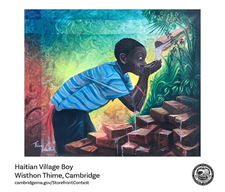 Allyson Allen: Are you a young Cambridge artist with a masterpiece to share? Enter the Vacant Storefront Creative Design Contest for a chance to win $1,000 and see your artwork featured in Cambridge. The City of Cambridge invites artists of all ages to submit their illustrations, prints, photographs, or other 2D media to the 2023 Vacant Storefront Creative Design Contest. Six winners will receive a $1,000 prize and their artwork will be displayed in the windows of empty storefronts in Cambridge. Applications can be submitted now and the deadline is March 1, 2023. Submit your art and apply here: 2023 Vacant Storefront Design Contest Application Find more information here including the art from previous winners: cambridgema.gov/storefront-contest 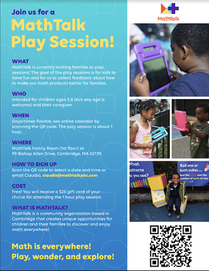 Claudia Ferrara: Join us for a Math Talk Play Session! MathTalk is currently inviting families to play sessions! The goal of the play sessions is for kids to have fun and for us to collect feedback about how to make our math products better for families. See flyer for details! Cambridge Camping: February School Vacation Camp-Cooking with STEAM! Kitchen science and cooking program for grades 6-8, Feb 20-24, 9-2:30PM, $50/child, hosted at The Foundry. Visit website for more information: cambridgecamping.org/cooking Hello OST Community! Below we’ve added a brief recap of the November Network meeting, resources, and community announcements, along with upcoming Network dates to remember. Here is a copy of our November 2nd meeting slideshow and Newsletter.
ESON & MSN SlideshowsBe sure to check out our recently updated ESON and MSN OST Opportunities slideshows. Make sure your program is included and accurate. These slideshows are shared with families, Family Liaisons, and shown in schools. Community AnnouncementsOpportunities and Announcements for You: 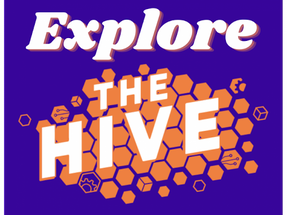 Network Coworking Session Please join us for our Joint Network Coworking session this Wednesday, November 16th, from 10:30am-12:00pm at the Hive, in the Cambridge Public Library, (main library) on Broadway. These sessions are laid back, informal, productive, & fun! Bring what you are working on, and do that with others in the network. We will have a very lightly facilitated space for folks to share what they're working on and anything they'd want to talk about with other folks. We will start off by taking a tour of the Hive and learn more about how our programs can take advantage of this state-of-the-art space that is the home to a fabrication lab, a multimedia recording studio, a podcasting studio, and an extended reality lab (XR lab). Click here to learn more about the equipment and studio.
Opportunities for Young People and Families:
CPS Updates
Thanks to all of you who came out for our October MSN meeting - while it was a little bittersweet to be back on Zoom, we got back into the groove of Connection Groups and using the chat quickly, and got to hear some great examples from folks across our network. Check out the October Meeting slides here and see below for Community Announcements and some of the great practices shared by your colleagues. Also in the slides: see the meeting topics and themes proposed by network members at our Sept kickoff, and check out the resources we gathered from the Office of Workforce Development (how to get your postings spread wider, etc) for those of you hiring OST staff. Community Announcements:
Making connections: who are the young people standing in front of me?The majority of our meeting we spent talking about the ways that we try to get to know young people at the start of the year in our programs. In doing this, we navigate multiple tensions that can’t be totally avoided (see slide below). For example, young people need to feel psychological safety and know that you won’t put them on the spot to answer deep and meaningful questions before they are comfortable; however, you also want to communicate that you care about more than just surface level information on the way to building a deeper relationship. We got to hear from a few MSN members talking about how they navigate these tensions - and sharing super helpful examples of what they actually do in their programming: Ben Godfrey, Program Director of the Pre-Teen/Middle School Program at the Moore Youth Center (moved from the Moses Youth Center!) shared two tools and his thinking behind them:
Bo Lembo and Melinda Rosado also shared some brilliant examples from Gately’s Middle School Program:
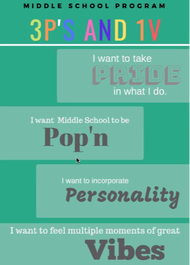
Lastly, I shared two resources (see slides).
So long for now...As most of you know (especially if you’ve seen me in person!), I’ll be on maternity leave soon, welcoming my second baby to the family. I love this group and hearing from you all and what you can learn from each other. There will be more joint meetings with ESON while I’m gone, but still many opportunities to share examples, ask questions and move as a group towards giving young people what they need and making sure they are engaged in great programming across the city. I’ll be back in late February - just in time to pester you all about going into Upper Schools to advertise summer programs!
iReady to Try Something New?
This year, Cambridge Public Schools is rolling out the use of iReady Personalized Instruction, an online learning platform and tool that can be used by families (and OST programs) to provide additional learning time in math and literacy beyond the school day. The district is excited by the prospect of collaborating with OST programs and partners to support students this way! How is this different from other online-based tools that CPS students use for learning?
When/How is this happening?
What does this mean for me as an Out-of-School-Time (OST) Program?
More info is coming soon - for now check out this 2 page infographic about the timeline and how it will be used! On a recent, sunny late August afternoon, more than one hundred nervous 9th graders (all working their hardest not to show it) found their way down to the Lecture Hall at the Cambridge Public LIbrary, and checked in for the first day of Bridge to CRLS. This new 9th grade orientation, hosted Aug 23-25th, came together through a collaboration between Cambridge Public Schools and Cambridge community partners, spearheaded by the Agenda for Children OST’s Middle School Network. Over the next three days, 260 incoming 9th graders traveled between the Library and CRLS for student-led tours, scavenger hunts, and workshops led by community partners and CPS staff, culminating in a Community BBQ on Thursday, August 25th, with a celebratory meal and send off for the 9th graders to their freshman year.
This year ESON and MSN will meet on the same day for all Network convenings. There will be opportunities for folks to break out into respective groups (ESON & MSN) during our time together. We are planning to do our first and last meetings of the year as in-person meetings at community locations - and then use Zoom for the bulk of the meetings in between, as we have heard from folks that the convenience and ability to sign in from anywhere allows more folks to attend and contribute. Please join us for as much or little time as you can for our upcoming IN-PERSON Kick-Off event on Wednesday, September 14th, from 10:00 am- 12:00 p.m at Starlight in Central Sq, 84 Bishop Allen Dr. See all calendar dates on our Events Calendar page 0r All Joint Network meetings on Sched (where you can RSVP!) Meeting dates for each month:Hello folks! If you missed our Feb 2nd meeting, read below to check out the community announcements, get the slides and see what you missed. Here is the link to the slide deck, where you can see visuals and get a sense of the conversations that aren't covered in the recap. Thanks for checking in! This meeting was focused on two things: appreciating the contributions of our long time MSN staff member, Medjine Lucien, and on starting the summer planning process. Medjine, who has just moved on to work for Waltham Partnerships for Youth, worked in multiple capacities on our MSN team over the past 4 years, so we did a little retrospective of all her contributions and heard appreciations from Nicole Rodriguez, her past supervisor at Moses Youth Center, in addition to multiple others in the community who have worked with and appreciated Medjine's quiet but steady leadership over those years. Good luck Medjine - we have a feeling Cambridge will call you back at some point soon, but we are glad Waltham young people have you in their corner now as well! Community Announcements at the Feb Meeting:
Next we talked about summer - where folks were in summer planning and how it felt to them. There were some great themes across the board, particularly wanting young people to make friends, feel belonging and have fun (and the adults to have fun alongside them). We also took some time to learn and test out the "annotate" version in Zoom, so folks could put a stamp on whichever thought bubble they felt represented their feelings on each question. Check it out: We had short breakout groups on a few of the topics mentioned here, particularly the social emotional skills and experiences we want young people to have, and cross-city partnerships and field trips. We asked folks before closing what was helpful to them, and what they want to have more time in MSN meetings to talk about before the summer: check out some great ideas and responses that we plan to build into meeting going forward!
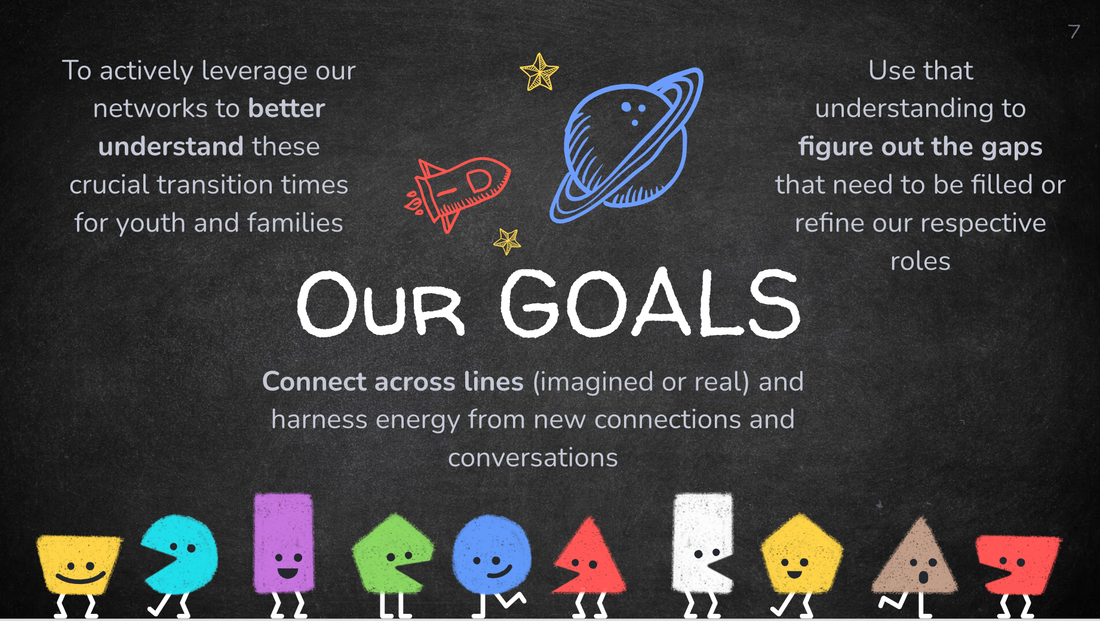 We are still sitting in the powerful energy of our Transition Years gathering on December 14th, and we've had many requests from folks for a recap of the meeting, both from those who couldn't be there and those who joined us. We had seventy - yes, 70 - folks show up to be part of the conversation. We (Annie Leavitt, Shawn Proctor and Nadia Davila) designed the conversation to be a cross-sector and cross-network conversation, as a joint meeting of the Elementary School OST Network (ESON), the Middle School Network (MSN) and Reaching All Youth (RAY), to address something we have known about for a long time. Naturally, young people and families face difficulties in the transitions between stages of schooling/life (between elementary school and middle school, to name one). Since the adults that work with them are often siloed into age groups, the support networks usually available in these difficult years are absent or incomplete, creating even more inequity at times that are already challenging and crucial for young people's development. The topic clearly hit a nerve - many people we talked to in our planning were so glad to hear someone was deciding to focus the conversation on these years. The energy was palpable, even on zoom, as everyone joined the conversation. Folks came to the gathering from across the spectrum of programs and school years, from birth and pre-K all the way to 12th grade and career transitions. Especially in the busy month of December, we are grateful that everyone took the time to join for the beginning of what will be a series of gatherings on this topic - and we hope you also felt the energy of the collective, of people who know that we can hold young people and families across these transition years with respect for the monumental transitions they are. If you missed the meeting (or part of it) and want to catch up, check out the info below and feel free to contact us to make sure we include you on communications to each of the Transition Year small groups! Each of the small/grade band groups will be meeting again in Feb/March, and then we will gather again June 14th as a wider group to share out what we think can be improved right away (within our roles and control) and move forward in advocating for what may include larger policy/institutional changes. It's not too late to join the conversation! Who was there? We kicked things off with a "Who's in the Room?" set of questions, which told us a lot about the group:
What were the goals of the conversation? As we often do in our network spaces, we wanted to combine a problem-solving approach with an equity frame focused on listening, checking assumptions and understanding gaps and challenges. We also set up the conversation to prioritize connecting across lines, and we hold firmly in our belief that new energy and possibilities can come from those conversations, even among people who have been doing their work for a very long time. We have found this to be true even in our own collaboration to plan this meeting - we have already learned so much about how we can align our efforts to create a continuum of care, especially for families and young people who face the most barriers and systematic oppression in our system. If you wan to hear more about these efforts, ask us about the future of the Community Partner Portal and Summer Program Pitch workshops (in Feb) we are also facilitating as Joint Network gatherings. So, what did I miss? For this first meeting, we grounded the conversation in stories from young people (alum Elijah Cheeks) and from caregivers (alum and caregiver Vanessa Bernard from the ESON/MSN Parent Advisory Board), and took some time to connect over relevant info in our Connection Groups. One group watched and reacted to this clip from Diary of a Wimpy Kid, which hit on many of the visceral feelings of moving into middle school, and another talked about their high school experiences, if they were to be summarized in the oh-so-popular "Spotify wrapped" format. Another group got to ask questions and dive deeper into Vanessa Bernard's experiences as an alum and a caregiver of multiple kids moving through transitions, and our last group was an opportunity to literally "meet the people" - a version of our usual "life catch-up" connection group, adapted for a space where so many folks were new to each other. Breakouts: Focus on challenges first After connecting, we moved into our 45min breakout groups to focus on the difficulties of each transition.It was important to us to dive into this topic by talking first about what we know are the challenges for young people and families - and not to jump too fast to solutions, to ideas, or to examples until we took a minute to see and hear what needed to be heard.
One of the other ways we sought to ground the conversation was in using data - in this case, using the example of chronic absenteeism data from Cambridge Public Schools - to spark the conversation and show how we could ask questions (and get some answers in the form of data) thanks to our partnership with Robert Emery, ICTS Data Manager for CPS. Check out the Transition Years slide deck (slides 16-19) to see some concrete data on how chronic absenteeism stats compare across the transition years. We are hoping these groups will come up with more questions we can explore using data - about the particulars of the transition, or about what might help in the transition. Moving from challenges to collective action: what's the next step? Each of our small groups planned a date to meet again in February/March, as a midpoint before another joint network gathering on June 14th, by which point we hope to have more clarity on what we can actively do in our own locus of control to improve the experiences of young people and families right now (like this year) and what we will advocate for from the larger systems and institutions that impact these transitions. The mandate between now and the Feb/March meetings, for each small group, was to use that time to:
This sounds like a huge and complex topic.... True. We ended our meeting with a debrief focused on two strength and asset-based questions related to young people, families and programs:
I missed the meeting but I want to join one of the four small groups (preK-K, 5/6th, 8/9th, 12th-postsecondary) for the future conversations and planning Great! Here are the dates for Feb/March meetings and the facilitators for each group - send us an email and we will add you in!
I missed it - did you record the meeting?
Yes, we did - at least the section not in breakout groups. We are editing it down to make it easily watchable - stay tuned! In our Middle School Network meeting on Nov, 3rd, 2021, we focused on an often-overlooked part of the equity landscape in Cambridge: access to after school for young people with disabilities and their families. Maya Gonzalez, retired educator, grandmother, Equity Fellow, and longtime Cambridge caregiver to her granddaughter Annalise (see pictures above!) talked to us about her experience trying to navigate the few options available in Cambridge, and how she has ended up leading an organizing effort to bring the call for equity (which is also mandated in several state/federal laws) to Cambridge's institutions and leaders.
Since everyone comes to the conversation from different places, we used a few media pieces as 'sparks' for the conversation and discussed them in connection groups: Inclusion is belonging, not a program:
Watch the recording here of Maya telling her own story and detailing her own journey to this place. She also covered where we are as a city (Cambridge) and what she wants OST providers to know about this issue, how it affects their families and how it affect you. The meeting slides also have some detailed bullet points on where we are now, and where we want to go. In the end, Maya asked us as a network to help move the work forward by completing and spreading her Needs Assessment survey for folks working in after school programs in Cambridge. They (Maya and SEPAC, the Special Education Parent Advisory Council) will be doing a similar assessment with families, but for now the important move is to know what is happening on the ground. How prepared do you feel to have disabled youth in your programs? What would change that? What kind of PD do you already receive? What communication do you have from schools about IEP plans, etc.? What keeps families from registering when they have children with disabilities? Want to be involved in next steps? Maya is hoping to form an After School Equity "workign group" that includes stakeholders from families, students, OST program staff and city and school department reps. For more info, email Annie (aleavitt@cpsd.us) or Maya (gonzalez-m@comcast.net ). |
AuthorWrite something about yourself. No need to be fancy, just an overview. Archives
April 2024
Categories
All
|
|
Looking for something?
|
|
